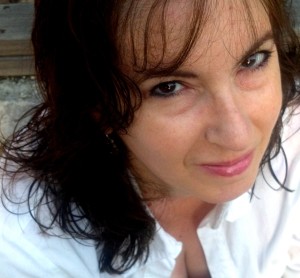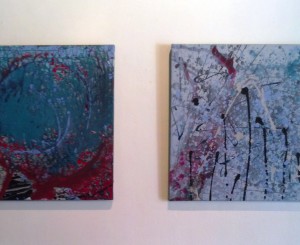Author Interview With Lisa Polisar
 Today, we have an interview with author, Lisa Polisar.
Today, we have an interview with author, Lisa Polisar.
So, what exactly do you write?
Mystery novels, and short fiction
How would you describe yourself in a short third person bio?
Writer of fiction and nonfiction, professional flutist, lover of chess, with undying passion for mystery novels, sci fi, and physics.
What made you initially want to write? Has your motivation changed since then?
As a child I loved making up stories, just verbally off the cuff, and loved it when others did too. One time this old painter was painting our foyer and I asked him to tell me a story while he was up on a really tall ladder. He spun this amazing tale of a fisherman in Greece and I was riveted. I wanted to grow up and do that – make up stories to take people away to faraway lands.
What do you think is the most important part of writing? And what is your favourite part of writing?
My favorite part of writing is the raw creative part – pen to paper or fingers to keyboard and working without an outline and just saying ready, set, go! But I think the most important part of writing (and my least favorite) is editing – this is where you take your raw material and mold it into something that other people might actually like to read and into a form that’s marketable to sell.
Tell us an interesting fact about you.
I absolutely love anything related to physics, especially string theory and quantum physics, and I was the most horribly unsuccessful student at math/science when I was very young. So this passion developed later in my adulthood.
Do you have a day-job, (other than writing)? How might this have affected your writing?
I’ve been a technical writer for software companies for 16 years, and for the past 3 years I’ve been a documentation manager for a  team of technical writers. It’s software writing, but it’s still all about telling a compelling story.
team of technical writers. It’s software writing, but it’s still all about telling a compelling story.
Do you prefer a physical book or an ebook? Why?
Both.
Tell us about your current WIP.
Medical/scientific thriller.
And you write short stories too. Can you describe for us how you go about writing a short story? Are you one for meticulous planning, or do you just dive in? How many drafts do you write for a typical short story?
For short stories I dive right now and never make an outline. I don’t even really make outlines for my novels anymore, because they take too much time and I don’t want to burn out on something as boring as an outline – I want to use that essential JUICE for writing the actual story. You can always go back and edit and polish later.
How do you come up with the titles for your stories? And do you have the final title before completing your story, or after?
Titles are terribly important to the marketing of your book, to what a potential reader/buyer will think about your story, etc. For my book The Ghost of Mary Prairie, I started with the title and the story just unfolded. For other books, the title came later, and sometimes I have a working title and then the real title emerges when the book is finished. You never really know what story inside you is waiting to emerge, I think it’s a matter of surrendering and allowing it to come out.
How has writing changed your life?
I feel like I’m an endless well of creativity and writing has been a wonderful outlet for me, one of several outlets. I’m also an abstract painter.
Where do you get inspiration for writing from? Do you listen to music whilst writing or have a ‘writing cave’?
I can’t work with music on, I need quiet so I can think. That said, when I’m writing nonfiction I typically work in a coffeeshop, and the din of voices and frothing machines helps my mind work. But not for fiction, for some reason. I don’t know where my ideas come from – just from the primordial soup of either my own consciousness or our culture’s collective consciousness. I get some ideas while driving, but it’s sorta random.
So, you have a few blogs about science and physics. For me, I always hated physics at school. But I’m guessing you liked it? So, when you write science fiction, how do you go about incorporating the ‘sciencey’ elements? Are your main characters scientists, or have an interest in science and/or physics? Is it necessary to understand the basic laws of physics to understand your plots?
My latest novel that I’m editing now is a sort of scientific/medical thriller, and yes I’ve had to do a lot of research for it and consult with technical experts in the industry, and that’s such a fun part of the process for me. I would never want to write a novel about musicians, for example, because I’m a lifelong musician and have lived and breathed that life since early childhood. I prefer to write about things I know nothing about so I can learn something new along the way.
Favourite book and/or author(s)?
The Club Dumas by Arturo Perez Reverte
Do you think it’s necessary to have a degree (of any sort) in order to be a successful author?
Yes and no. You do a lot of reading and writing in college, so in a way an education gives you more opportunities to use and understand language in different contexts. But no I don’t think it’s necessarily a prerequisite. I do think you have to be prepared to do copious research and really dig deep into a subject matter to understand what you’re writing about – if you don’t, your end product won’t sound authentic to a reader. You always have to assume that if you’re writing about cooking, a gourmet chef might be reading your book – how would ‘they’ critique your book from their expert perspective? I wrote once about a ranch hand delivering a calf, and I had to actually go and do it so I would know what to write about it. It was interesting to say the least!
What would you say to those who want to become a writer? Any advice?
Yes. Pick up a pen and do it!
